Podcasts
Due to my personal crusade of science communication, I am sometimes asked by friends and other producers to appear on their podcasts to discuss aspects of my research or general herpetological goings on. This is an experience I very much enjoy, although once I get speaking I sometimes get a little carried away! Below is a list of the podcasts I've appeared on, speaking on various topics for you to enjoy.
To listen to each of the podcasts, just click on the podcast images to be sent to the appropriate podcast hosting website, or use the Spotify player. Enjoy!
Herpetological Highlights
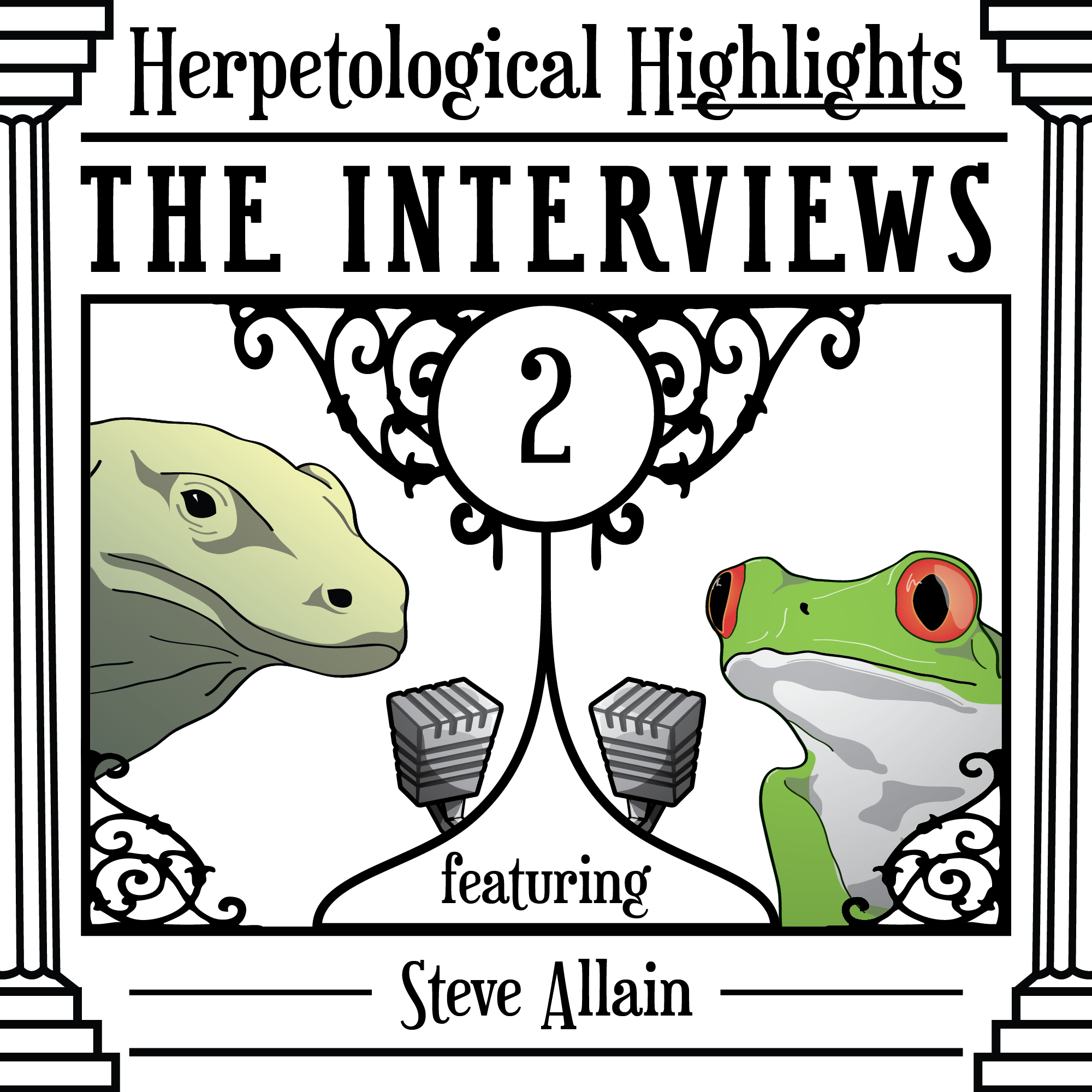 |
At the 2017 Venom Day held at Bangor University, I bumped into Tom Major who asked if I wanted to record an interview for Herpetological Highlights. I of course jumped on this opportunity as I though it would be a great way to raise some awareness of my midwife toad related research which had gained traction that year. So one afternoon we went to the pub to sit down, have a pint and discuss midwife toads Herpetological Highlights was my first podcast appearance and helped me get my foot in the door! |
The Naked Scientists
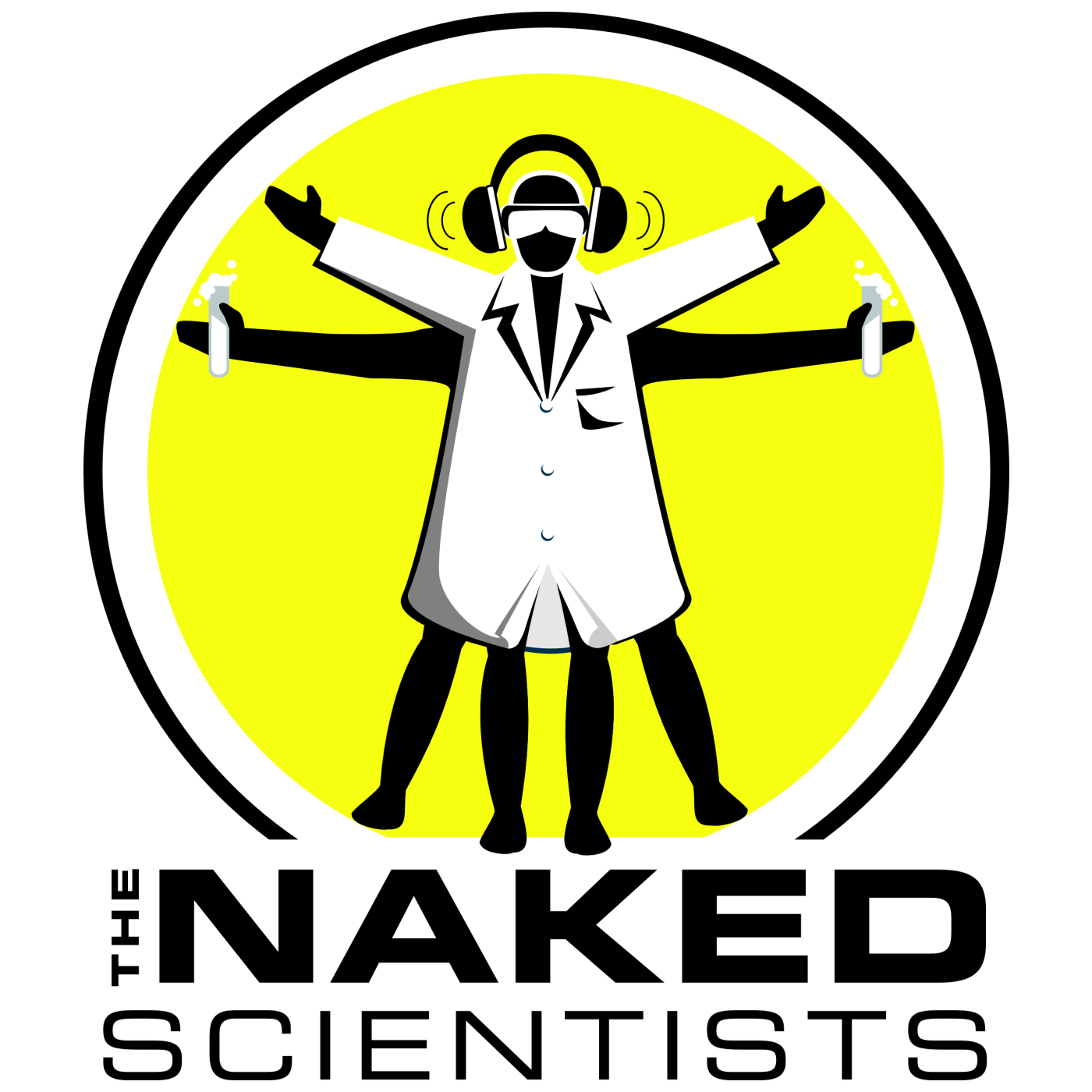 |
In May 2019, I travelled to Cambridge to record an interview with The Naked Scientists at the BBC Radio Cambridgeshire Studio. This was somewhere I'd been numerous times before for various radio appearances regarding the reptiles and amphibians of Cambridge and the surrounding area. As part of the podcast I discussed the speed of a snake's strike, how quickly their venom acts as well as other venomous animals. The podcast was being recorded live and broadcast over BBC Radio Cambridgeshire so apologies if I sound a tad nervous! |
Reptile n Chill
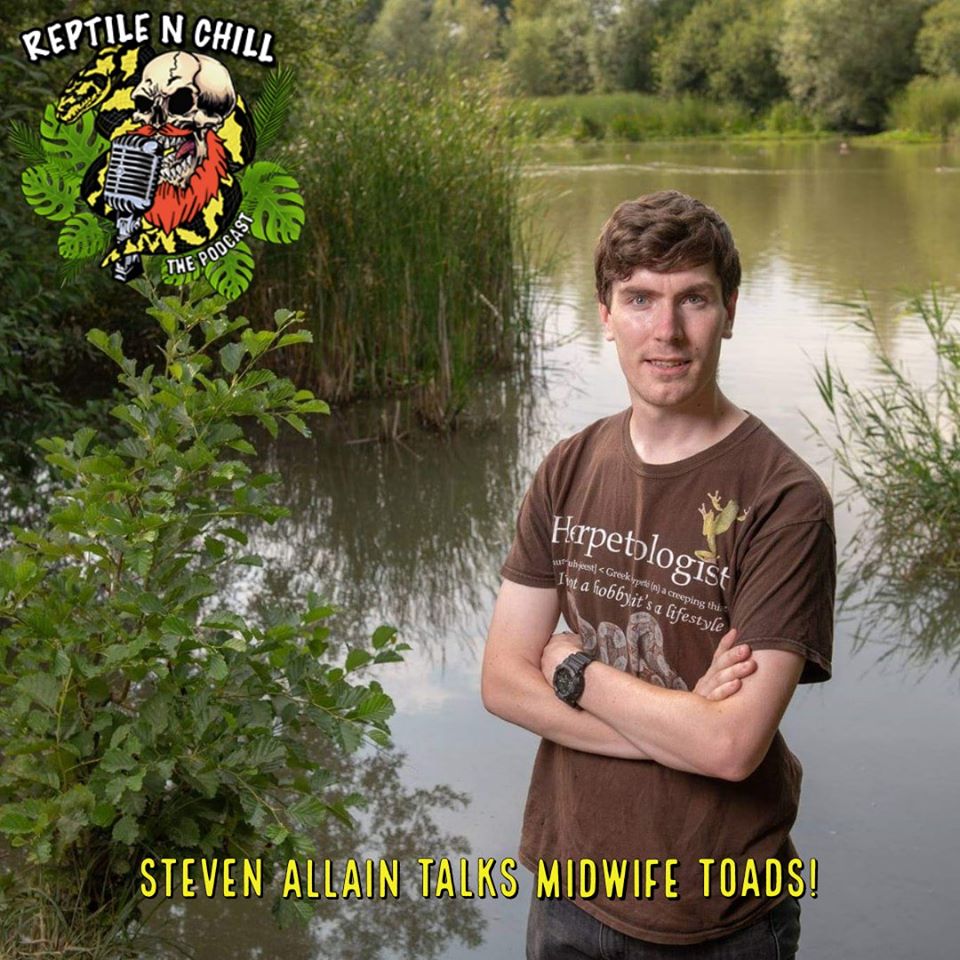 |
In September 2019, I was part of a team running a crowdfunding campaign to help fund the sequencing leg of our ongoing national midwife toad project. We're trying to determine the origin of the UK's midwife toad populations by comparing their mitochondrial DNA to a reference library to see which population(s) they match best. As part of this I was asked to appear on the Reptile n Chill podcast to explain why they money was needed and what we were going to do with it. Whilst answering questions, I also took the time to discuss the importance of herpetofauna conservation and how anyone can get involved up and down the country. |
UK Wildlife Podcast
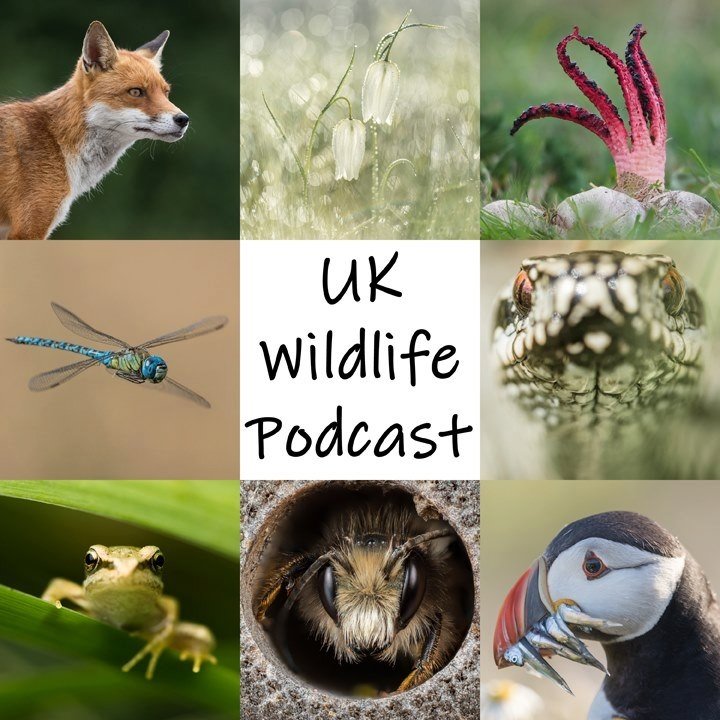 |
As spring of 2019 came around, my friend Neil Phillips (also known as Pond Man on social media) asked me to appear on his fledgling podcast (co-host by wildlife photographer Victoria Hillman) to discuss frogs and toads. March is the time of year when most people start to see them return to their breeding ponds so we tackled a number of questions as well as exploring the species one might find in the UK. All three of us love amphibians so it was quite a fun podcast to be involved with. We also briefly touched on the ongoing midwife toad research and hopefully they will have me back before the end of the year to discuss newts! |
The Herpetile Podcast
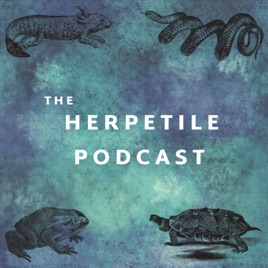 |
For those of you that don't know, The Herpetile Podcast is a fledgeling podcast organised and hosted by a 10 year-old Australian herpetologist called Nash. He approached me via Twitter and after some back and forth via email, we recorded an episode of the podcast. Let me tell you something now, Nash is going places so watch this space! Nash had clearly done his homework as a number of his questions were spot on in regards to my research and general interests in herpetology. We briefly discussed by current PhD research as well as a number of other topics. It is definitely worth a listen! |
Alien Places
 |
The Alien Places Podcast is a follow-up to Atul Kumar's book of the same name. In the book, Atul travels the globe with an alien who believes that humankind is heading for extinction. On these travels, 10 locations around the world are visited to provide a cultural and environmental background for our species. Atul also recommends both movies and songs for the alien to enjoy to put what it has seen into perspective. After reviewing the book I was asked to appear on the podcast to reveal three places I'd take the alien and why, as well as recommending a piece of music and a film associated with each. |
UK Wildlife Podcast
 |
Thanks to the hard work of Neil Phillips and Victoria Hillman, the UK Wildlife Podcast has attracted quite the audience with over 18,000 downloads at the time of recording episode 22. In the episode, I assume co-host duties (as Victoria was unavailable), after the news Neil and I then discuss the UK’s newt species. This includes our three native species (smooth, palmate and great crested), their ecology and breeding breeding habits. We also take time to mention the non-native alpine and Italian crested newts as well as neoteny that sometimes occurs in UK species. |
The Call of Nature Podcast
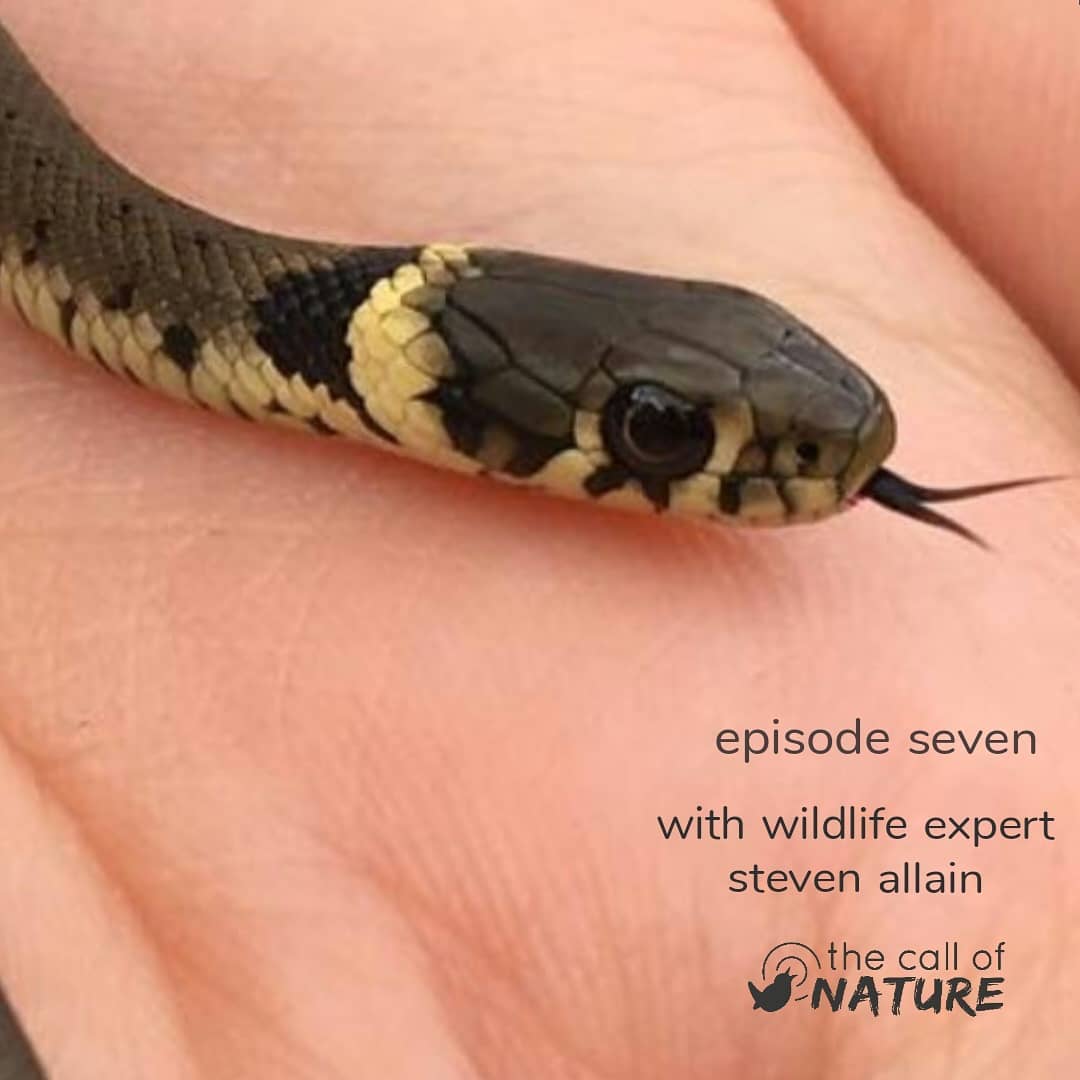 |
The Call of Nature Podcast is a grassroots podcast hosted by three blokes working in conservation, for everyday people. Their vision is to create a podcast to help connect anyone with nature by providing short snippets of information so that they don't get overloaded. One aspect of the show is short interviews with specialists to highlight the plight of their particular study species. That's where I come in, speaking for a few minutes to try to break down the barriers people have with reptiles and amphibians in terms of fear and stigma. I hope to be asked to appear again in the future! |
Planet B612
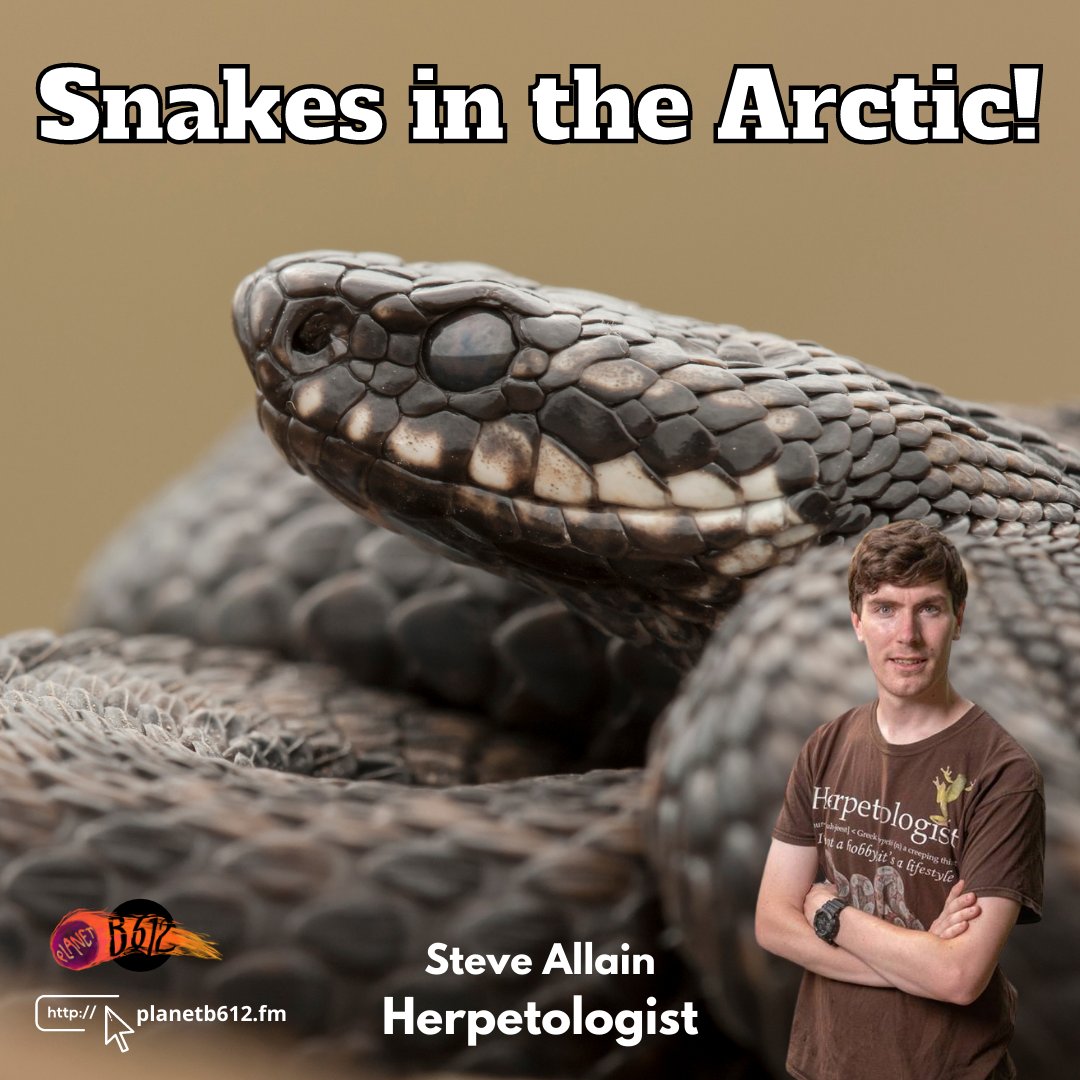 |
Planet B612 is a very different kind of podcast, hosted by Julie Laurin. Julie interviews scientists and artists alike to learn more about the particular fields, with all the curiosity and enthusiasm as a small child. I feel this makes her a spectacular host, it always upsets me when someone loses that spark. Why would you stop questioning everything you see an experience every day? As always I brought my herpetological flair to the show talking about such topics as how to find amphibians, why you should build a garden pond and the fact that snakes are found within the Arctic Circle. We didn't cover everything that I would have liked to so hopefully I'll be asked back in 2021! |
Into The Wild: The Podcast
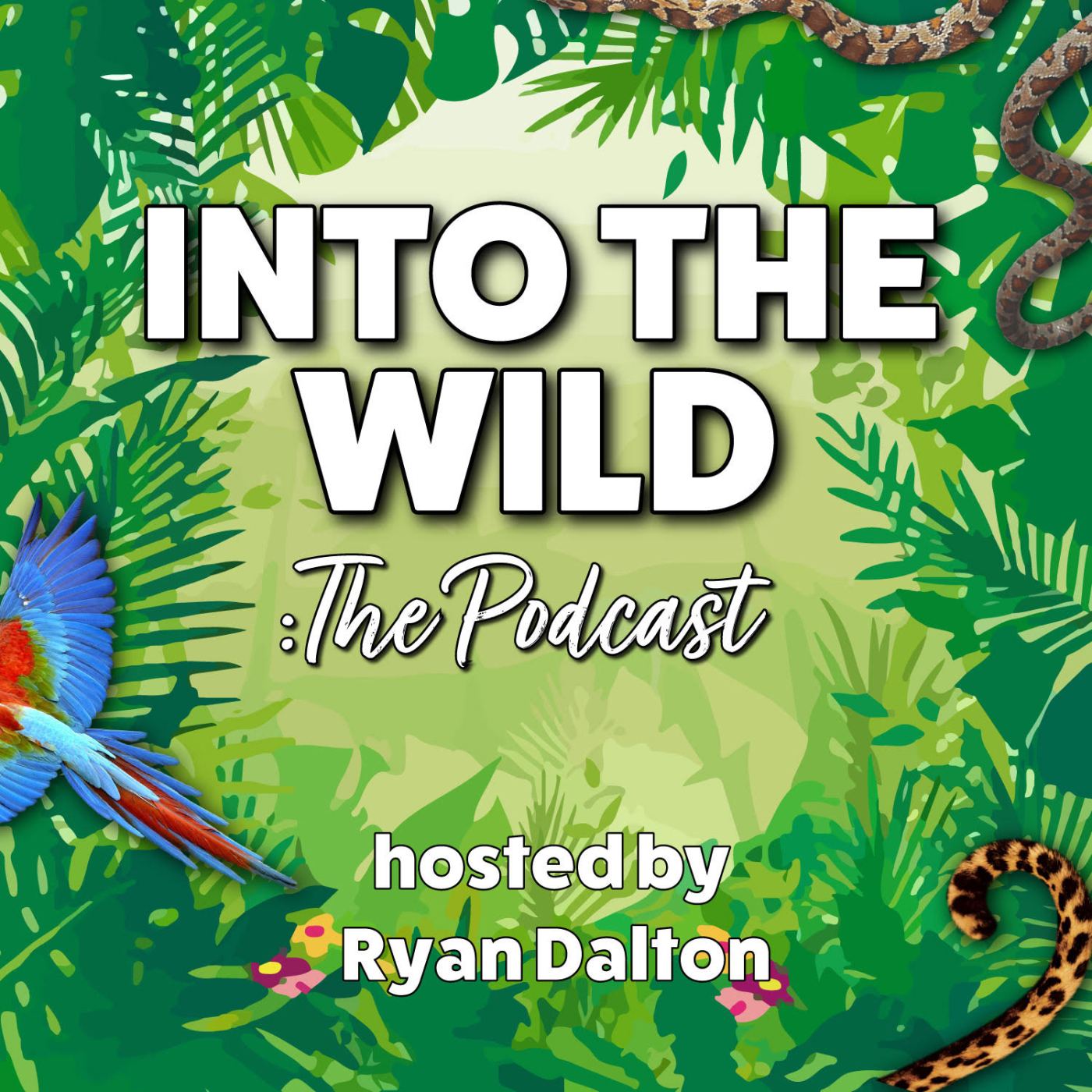 |
I join host Ryan Deaton to discuss the image problem that snakes have in the Western World, as well as which snakes you can find here in Great Britain. We of course also discuss some general snake points such as how they move and why they are disappearing from habitats where they were once common. A major point we discuss is the disconnect observed in the general public, especially in relation to there being three native snake species found across England, Scotland and Wales. For your benefit, I also tell you about each of the species and how to identify them. Snakes are nothing to be afraid of and I hope this podcast helps to break down some of those barriers. |
Be Curious Beings Podcast
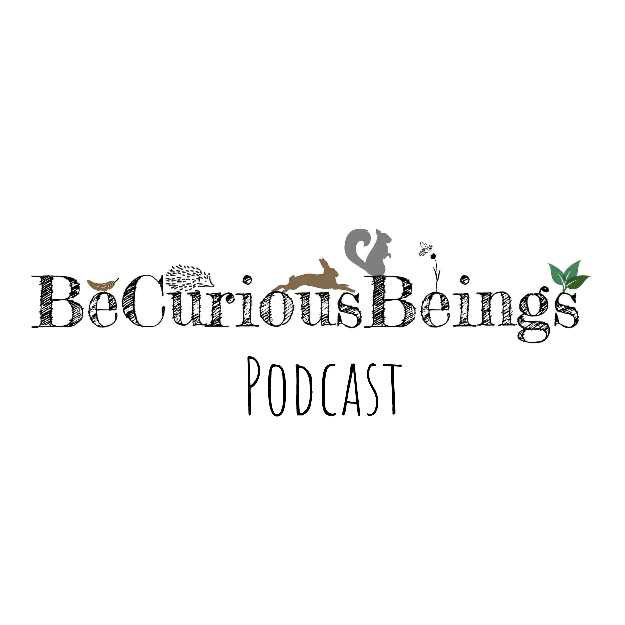 |
On my one man attempt to reverse 2000 years worth of damage towards snakes, I was invited to discuss them on the Be Curious Beings Podcast. In this episode we talk about how one goes about studying snakes as well as what species can be found in the UK. We also discuss some of the image problems snakes face and why these are ill-founded, mainly by people that have never had the chance to interact with them in the wild. As always, I could talk for hours on the topic but we had to keep things short so I hope you enjoy this condensed introduction to snakes and their conservation. |
UK Wildlife Podcast
 |
For my third appearence on the UK Wildlife Podcast, I join hosts Neil Phillips and Victoria Hillman to talk about snakes for the 42nd episode (who could have seen that coming?). We outline which species can be found in the UK and where you are likely to find them. This includes the grass snake (Natrix helvetica), adder (Vipera berus) and smooth snake (Coronella austriaca). Towards the end of episode we also discuss how to reduced to disturbance to snakes and what to do if you find one. Since the last episode I appeared on (ep. 22), there have been over 50,000 downloads of the podcast which is pretty good going! I'm proud to have been part of this and hopefully they'll invite me back soon to discuss lizards of the UK. |
The Natural History Cupboard Podcast
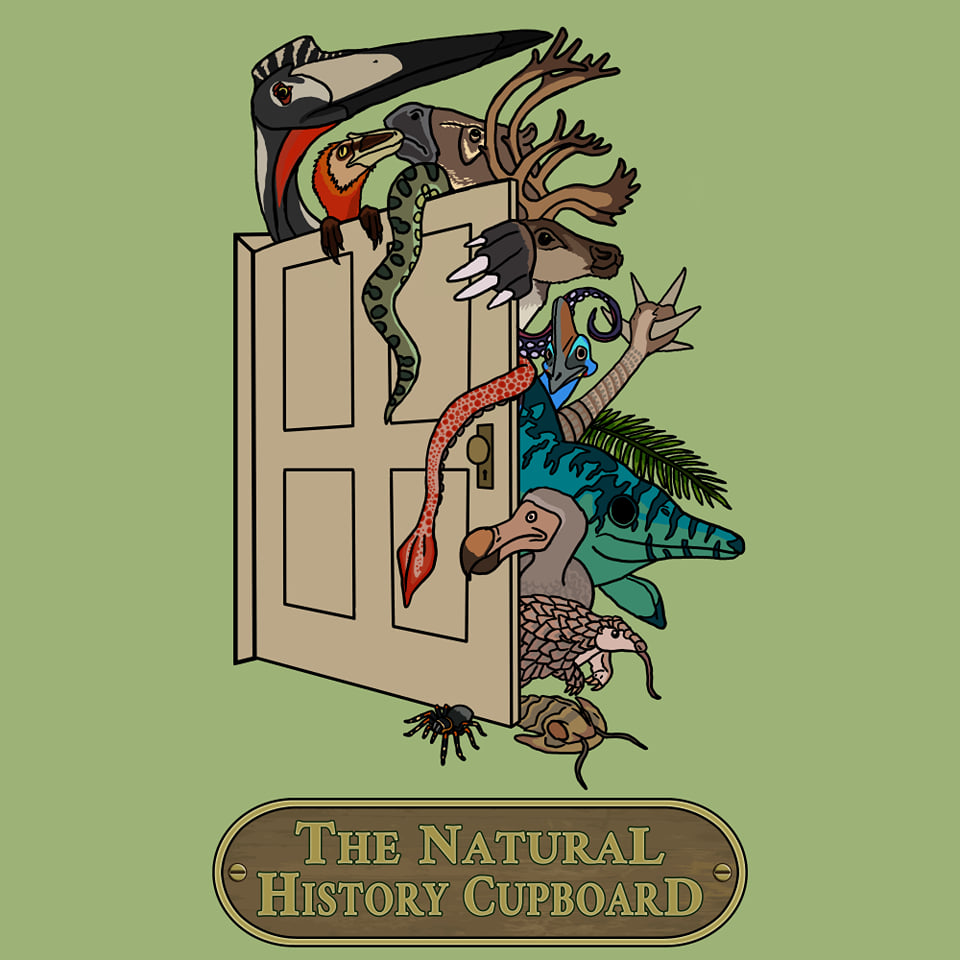 |
I was asked recently to appear on The Natural History Cupboard Podcast to speak about amphibians and reptiles, like always, I was more than happy to do so. The episode ended up being more reptile-focussed, so hopefully they'll have me back soon to help shift the balance back towards the middle. If you'd like to learn more about our native reptiles then this is the podcast for you! |
UK Wildlife Podcast
 |
You may have heard recently that the Joint Nature Conservation Committee (JNCC) are proposing plans to change the listing criteria for species on the 1981 Wildlife & Countryside Act. With Neil Phillips, we look into what the current Schedule 5 protection being reviewed is and what species of reptiles and amphibians do not qualify for protection under the proposals, and what the changes would mean for them. We also briefly discuss the potential damage caused by such proposals to other species which are also protected under the Wildlife & Countryside Act. This episode is a relatively short one, produced quickly in order to try to get the word out so apologies for any crackling audio or other issues. |
Hidden Wings and Bloodlust
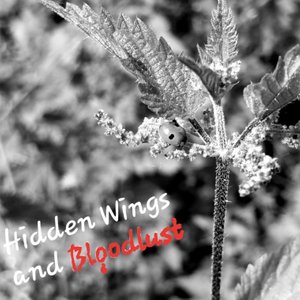 |
Shortly after the airing of the previous episode of the UK Wildlife Podcast, where we spoke about the threats to British wildlife through the proposed changes to the 1981 Wildlife & Countryside Act, I was contacted to appear on the Hidden Wings and Bloodlust podcast, speaking on a similar topic. I was more than happy to do so, in order to help spread the message to as many people as possible. I hope this also helped inform members of the public from all walks of life on how they could act, to help safeguard our wildlife. |
For The Love of Nature
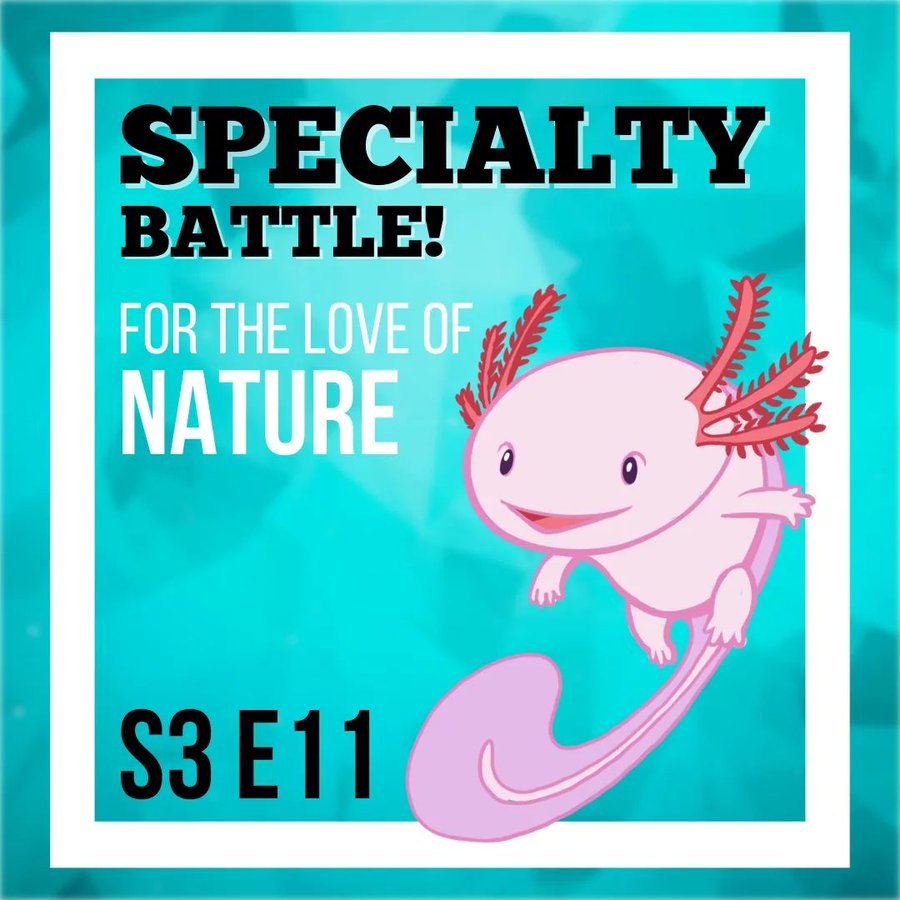 |
You put amphibians and reptiles on one side of the ring, and invertebrates on the other. Who do you think is going to come out on top? In this Specialty Battle for the For The Love of Nature podcast, myself and entomologist Josh Byrne go head-to-head to decide. Make sure you give it a listen and let me know which side you think reigns supreme. I'm biased of course, but in my mind, it is always going to be amphibians and reptiles. |
The Plastic Plesiosaur Podcast
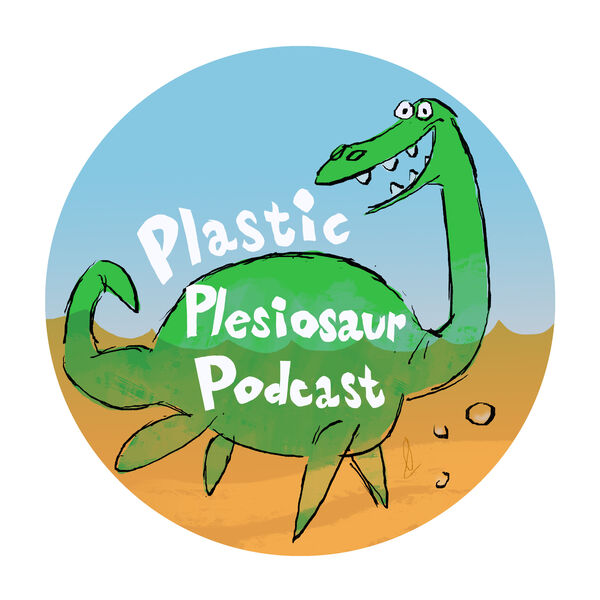 |
Have you ever heard of the YouTuber Trey the Explainer? Well, The Plastic Plesiosaur is the podcast where him and his buddy Miles try to debunk such topics as cryptozoological sightings, talk about the natural world, and sometime dabble in palaeontology. In this episode, I'm the special guest to discuss the possibility of giant snakes being present in areas of the Amazon, and discuss the likelihood of accounts such of that of Percy Fawcett, of wild snakes reaching lengths above 60 feet in the present day. |
The Tattling Toad
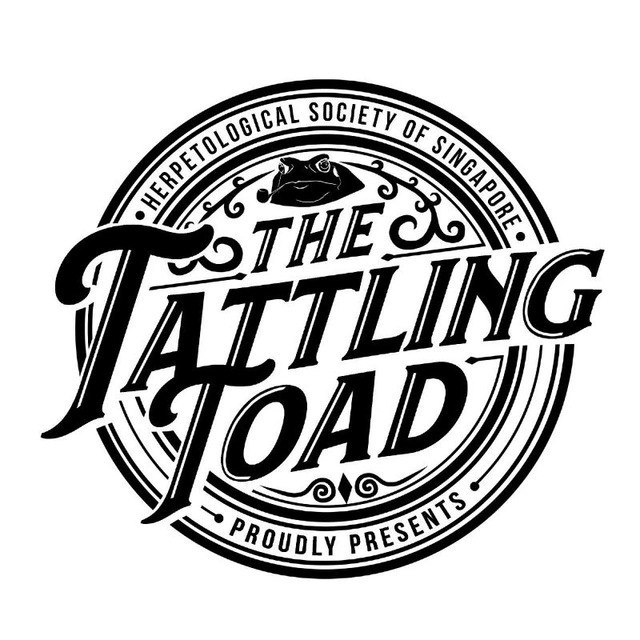 |
Despite the fact this episode wasn't released until October 2022, it was actually recorded two years prior to that. Some production delays meant that unfortunately at the time of release, what I said back then was slightly out of date. Thankfully though, the field hasn't moved on too much since then, but it would have been nice to know what we do now to put some of what I said into context. I would also like to thank the Herpetological Society of Singapore for inviting me to appear on the podcast. Hopefully, it is something I'll be able to do again in the future! |
So Much Pingle
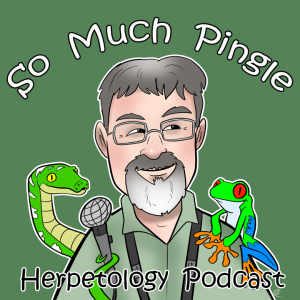 |
For Episode 85 of the So Much Pingle Podcast Podcast, I sat down with Mike Pingle to discuss some of my research projects including grass snakes and midwife toads (who could have seen that coming?). Mike and I have been in contact for a few years now thanks to the powers of social media, and I was fortunate enough to be asked to appear on the show to chat about some of the things Mike had seen me posting about over the years. It was great to have a gentle conversation about everything I have been up to over the past few years, how this ties into one another, and what my next plans are. It is always great to have that moment of reflection with a friend. |
More podcasts coming soon!
To book me to appear on your own podcast, please get in touch via the Contact page or via social media.















